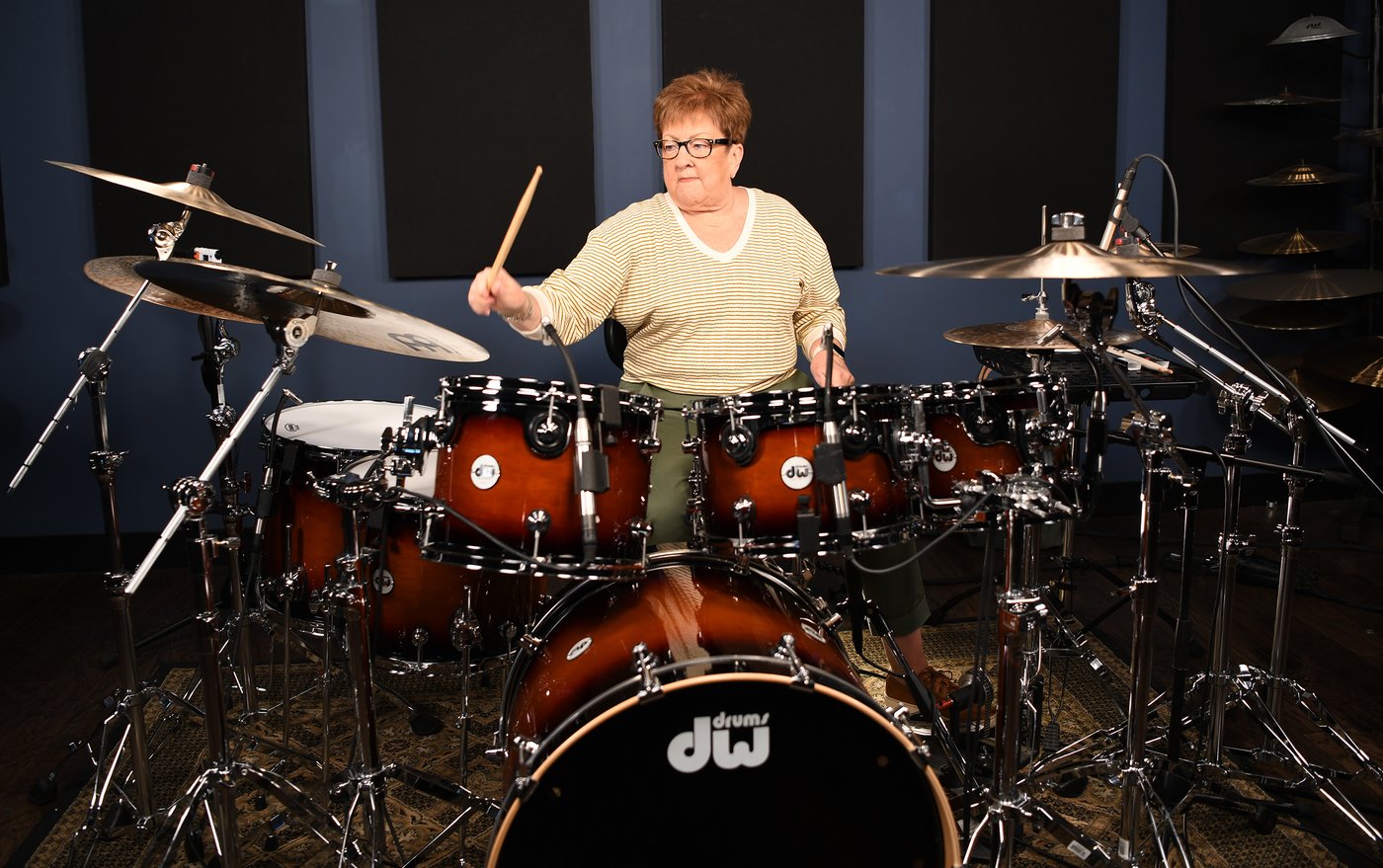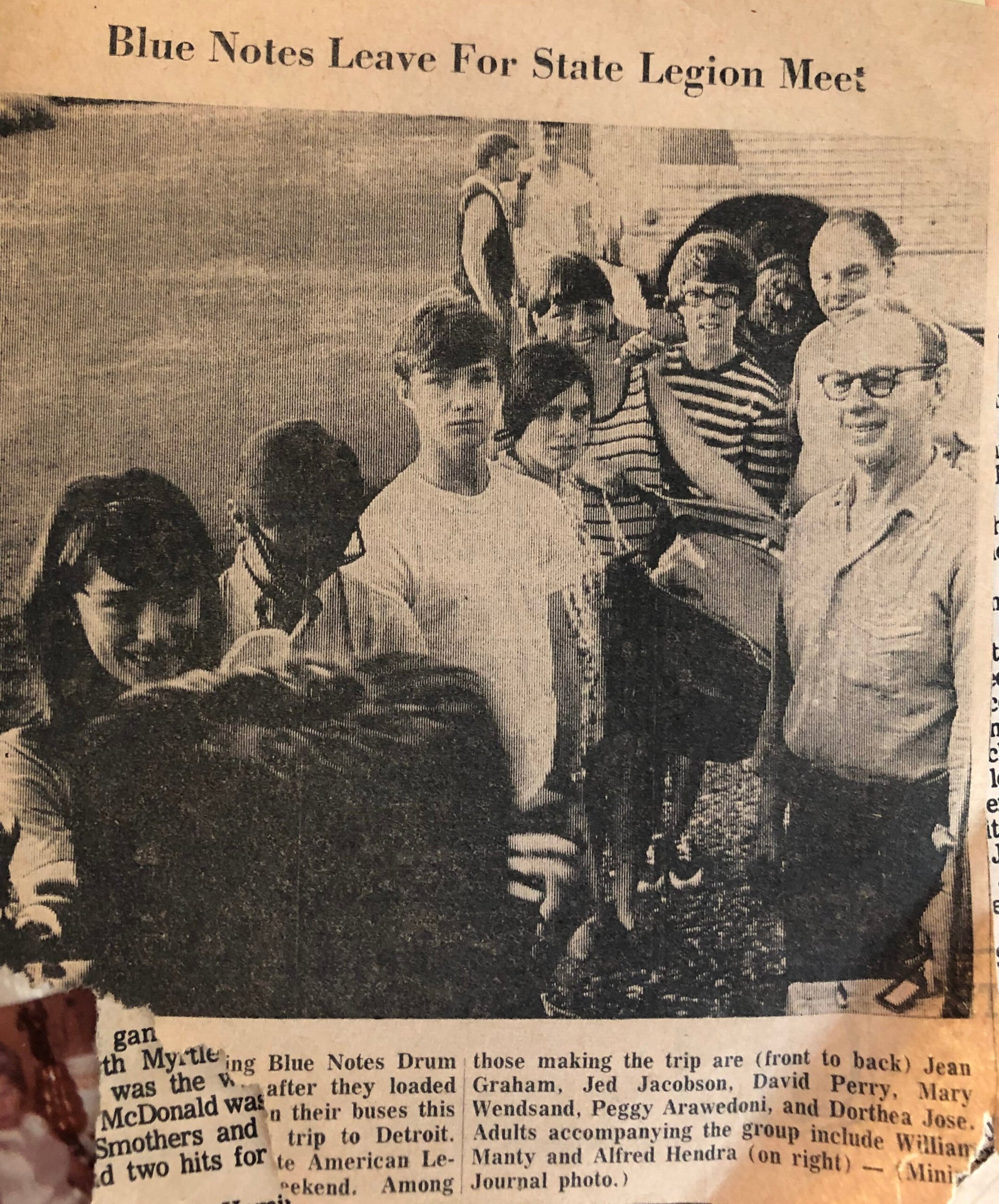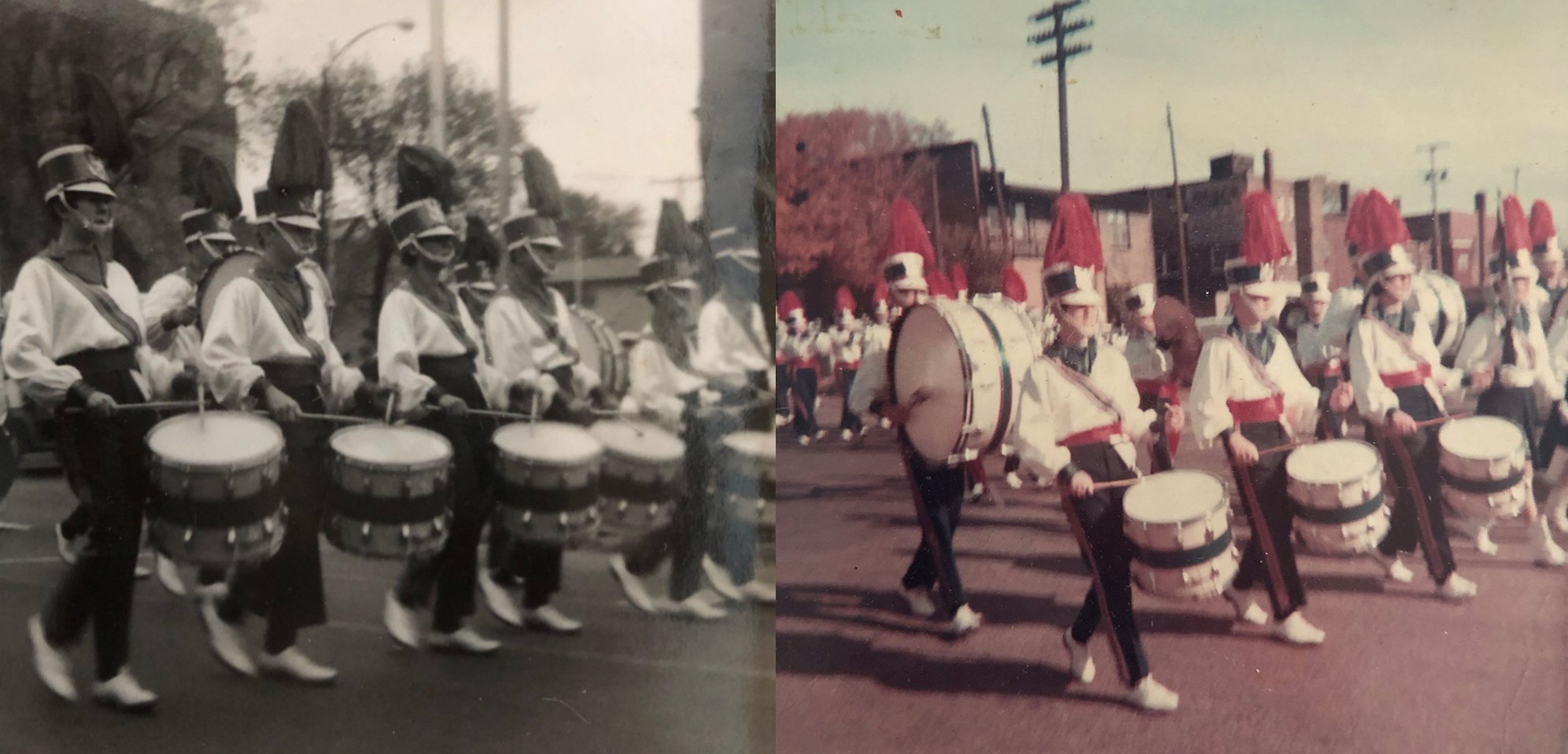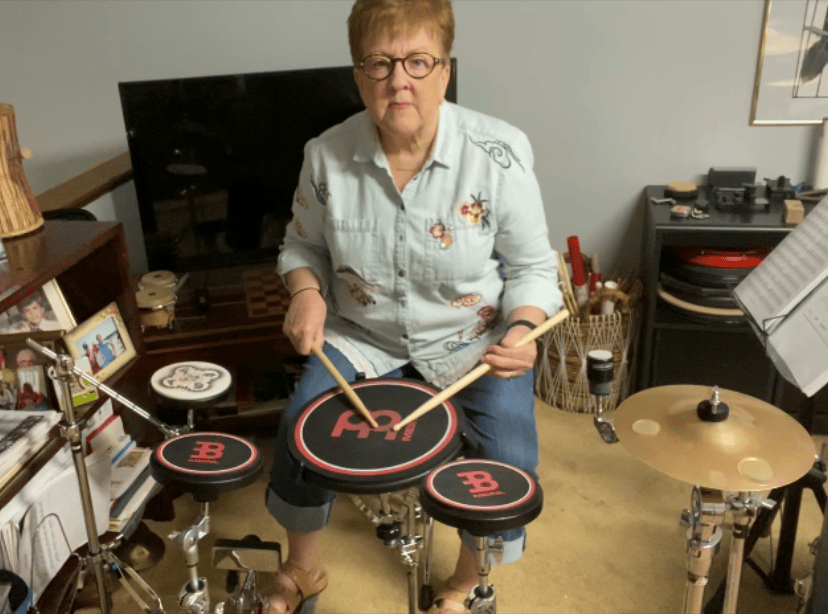
Coming from a town of less than 7000 people, I was so lucky to have a drum and bugle corps. Not only did we have one, but these were state champions, the best in all of Michigan.
I felt this spirit that I was going to be a drummer, even though women and girls did not play drums back then. By 8th grade, I decided that I didn’t care if anyone was going to think crazy of me or tease me. I just knew that I was a drummer at heart.
In the drum and bugle corps, when you got good enough, you could seed up to the regular corps for competitions. I joined when school started in September, and by December I was drumming with kids who’d already been there for a year.

My mom would get me up in the morning. If it was 20 below, I still had to walk to school. I’d get my clothes on, come downstairs, and if my mom was still fixing me breakfast I’d go into the dining room where I had a practice pad. I would play some singles or doubles or paradiddles, even if it was five minutes’ worth. Mom would say “hurry up” and “eat your breakfast” and I’d walk to school.
We didn’t have a cafeteria, so I would walk almost a mile back home, go straight to the practice pad, play a bit, eat lunch, brush my teeth, and run back to school. Then I would come home at 3:30, go back to the practice pad and stay there for a good amount of time.
I would do some homework and eat dinner, and then it was back to the pad.
If you added up all of this, I was practicing for over two hours a day. I loved it from the very beginning. I loved seeing the progress, seeing my paradiddles get smoother and cleaner, and I would be anxious to go back and learn another rudiment for the next week. I kept adding to my knowledge and I just got good.
One day, some judges came in and asked us to play while they listened from another room. They couldn’t see your technique or anything, but they could hear you building up double stroke rolls, paradiddles, ratamacues.
I had only been in the corps for three months, but when they came out of that room, it turns out I was at the top.
I took first place.
But because I didn’t have seniority, I ended up playing cymbals that whole first marching season. I was taken aback. I was disappointed because I knew that my hands were developed, I’d been practicing a lot, and I loved it so much. But I wanted to be there so much I went ahead and played for that summer.
By the next year, I’d already bumped up into the main corps. I think I played tenors the first year, and snare for the last four.

Me on first snare in 1968.
The drum and bugle corps would practice during the winter, two nights a week for like four hours at a time, and when summer came we practiced 8-10 hours a day. We practiced as sectionals and then we’d get together with the whole line and go through our marching routine at night. It wasn’t like signing up for drums at school and just playing in the classroom; it really built your chops.
If I had not done the drum corps, and talked my parents into getting me a drum set instead, I wouldn’t have had the skills with my hands – the chops, as they say – to be able to sit down and apply the fundamentals I had learned.
I didn’t get a drum set until the 11th grade – we couldn’t really afford it. My dad set up the drums for me in the living room. I started playing, and they said, “How did you know how to do that?” I had so much experience with my hands that I was able to go to town on the kit. Without that experience, it would have been totally different all these years.
My dad set up the drums for me in the living room. I started playing, and they said, “How did you know how to do that?”
I graduated high school at 17 and you could be in the corps until you were 21. But at 19 I fell in love. I wanted to stay and play, but my now husband was with the Air Force and got transferred to Myrtle Beach, so we decided to get married and that’s why I left.
In my years of teaching, I have not had to spend a lot of time showing every single student to hit the bass drum on 1 and 3, or whatever it may be, because of the training that I’ve given them with their rudiments and being able to switch fluidly from right to left. By the time they get rudiments down, and they’re a decent snare drummer or practice pad drummer, they don’t have that problem with fluidity.
To start someone from scratch on the drum set, their hands are not working, their wrists are stiff, they don’t know how to use the Moeller technique. They think it’s going to be easy. If you can’t play fast singles, doubles, or paradiddles, you won’t sound any good on the drum set. Look at Thomas Lang playing traditional grip – you can tell he has intense rudimental training. I can see it in his style.
If you’re new to drumming, get a practice pad and a pair of sticks and a copy of Stick Control. And when you can play all of those things at a pretty good tempo, then you can get on the drum set and work on some grooves.

I recently showed a student how to apply a paradiddle inversion on the kit. Their eyes opened up to a new world. They’re doing these things they think are boring on the practice pad, not realizing that they’ve got to get those tempos up, and to separate their hands between the ride and snare. They’re thinking oh, this book is so boring, but it’s not. I love the first page of Stick Control – it’ll get your wrist, fingers, and technique working, and you can expand it on the kit.
I know that many of you believe and agree that working out on a pad is extremely important in your progress in becoming a great drummer and maintaining your drum skills. I also believe that you don’t have to learn and perfect all 40 Essential Rudiments – along with the new hybrids – before you can sit down behind a drum kit. As a new student, you should be willing to learn the fundamentals and have fun doing it and be the best you can be.
You can’t expect to go to a drum set and play a Dave Weckl or Thomas Lang solo. You have to start on a pad with the fundamentals.
If someone went to a guitar teacher and said they’d never played guitar before but they wanted to learn a popular song, and their teacher went along with that, would they end up being a good player? They didn’t learn the strings, they didn’t learn where open C was, or a 1-4-5 progression. They just learned how to play that one song. You can’t be a professional basketball player doing fancy dunks if you’ve never had a basketball in your hand before. You can’t expect to go to a drum set and play a Dave Weckl or Thomas Lang solo. You have to start on a pad with the fundamentals.
It’s so important to learn these first. To climb the ladder of success, as they say, you’ve got to start at the bottom. You have to take it one step at a time. If you only know single paradiddles, singles and doubles and they’re pretty darn good, take the next step up and learn drag paradiddles, double and triple paradiddles, some linear patterns, and so on.
I think many people quit because they don’t get instant gratification. If you put in the work, you will see the results. Be patient, don’t put the cart before the horse, and soon you’ll be able to join Buddy Rich at the top of the ladder.




By signing up you’ll also receive our ongoing free lessons and special offers. Don’t worry, we value your privacy and you can unsubscribe at any time.
We use cookies for traffic data and advertising. Cookie Policy »